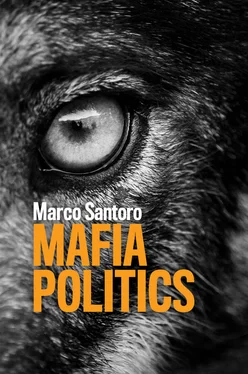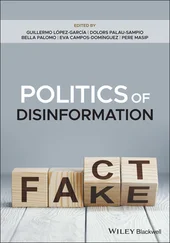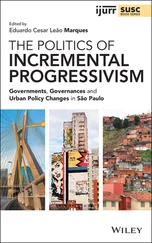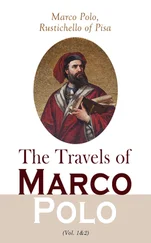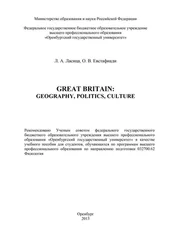1 ...8 9 10 12 13 14 ...23 While useful in analytical terms, these works are not enough by themselves. We need additional tools if we want to grasp the mafia’s identity and specificity. I suggest it is possible to find these tools in such different and seemingly at odds sources as Marcel Mauss’s theory of the gift (1990 [1925]), especially as revised by Bourdieu (e.g., 1996 [1992], 1997, 2017; see also Silber 2009); German formal sociological theory based on both historical research on ancient European peoples and ethnographic research on colonial societies (e.g., Schurtz 1902; Simmel 2009 [1908]; Schmalenbach 1977 [1922]; Vierkandt 1931); and recent work in cultural sociology focused on the deepest foundations of social life in symbolic codes and structures (e.g., Alexander 2003, 2013; Smith 2005; Alexander et al. 2011). Indeed, a secondary contribution of this book is the attempt to merge different and usually non-communicating strains of theoretical work in a compact analysis. I will discuss these intellectual resources in the following chapters when useful.
Contesting Eurocentric Social Theory
If these (European and North American) works provide the toolkit for attempting an overall anatomy of the mafia as a mode of political organization, the crucial metatheoretical background of the book is located in three related streams of contemporary thought: (1) the rise of alternative, i.e. non-Western and Southern, discourses in the social and historical sciences, including subaltern studies (Ludden 2001; Chakrabarty 2000; Alatas 2006a; Connell 2007; Patel 2010; Comaroff and Comaroff 2012); (2) the current revision in political science of the theory of the state in light of a more globalized – i.e. non-Eurocentric – understanding of political life (e.g., Spruyt 1994; Thompson 1994; Scott 1998; Steinmetz 1999; Rudolph and Jacobsen 2006; Rudolph and Rudolph 2010); (3) the resurgence of anarchism as a theoretical structure and cognitive device in the social sciences (see Clastres 1988 [1974]; Graeber 2004; Scott 2010, 2012; for an earlier contribution directly relevant to our topic, see Reclus 1891). In the following, I will elaborate briefly on these points.
As for the first point, besides the notion of subaltern politics, I would underline what can be gained in mafia studies from the rediscovery of Ibn Khaldūn’s social theory of solidarity, what the medieval Arab scholar called ’asabiyya (Khaldūn 1967). The name of Ibn Khaldūn has been much discussed recently as an early pioneer of sociology and a great source for those alternative discourses in the social sciences that current globalization is reclaiming (see especially Ahmed 2003; Rosen 2005; Alatas 2006b). To be sure, Ibn Khaldūn was well known long before this recent resurgence of interest spurred by global thinking, as a forerunner, together with Vico, of Comte’s idea of sociology, even among Italian scholars (e.g., Barnes and Becker 1938). His great work, The Muqaddimah , was (in its French translation) a source for nineteenth-century scholars of politics and ethnicity, such as Ludwig Gumplowicz, himself a source for Mosca’s political sociology. This early and now classical contribution can be profitably used in mafia studies as well – not surprising, considering the Mediterranean location of Sicily, the medieval Arab colonisation and the Arab roots of the very word ‘mafia.’
A brief description of the concept will suffice. 5 ’Asabiyya is, for Ibn Khaldūn, the fundamental bond of human society and the basic moving force of historical dynamics. The first basis of this force is undoubtedly in nature, in the sense that ’asabiyya , in its most common form, is derived from tribal (male) consanguinity. The inconvenience of this ‘racial’ conception was already overcome in Arab antiquity by the inclusion of the institutions of affiliation and spiritual kinship, to which Ibn Khaldūn accords great importance in the formation of an effective ’asabiyya . Most important, ’asabiyya is grounded on personal leadership and loyalty more than impersonal, objective institutions – a point contemporary scholars tend to undervalue even though it is crucial for understanding Ibn Khaldūn’s theory as embedded in its time and culture (Rosen 2005). Whether based on blood ties or on some other feeling, ’asabiyya is, for Ibn Khaldūn, the force which impels groups of human beings to assert themselves, to struggle for primacy, to establish hegemonies, dynasties and empires. It is a main tenet of Khaldūn’s theory that, once power has been seized, the dominant group tends to lose the ’asabiyya on which it was originally based and substitute other forces for it, which sets the ground for a relaxation of customs and a general weakening of moral life. This makes room for the rise to power of a newly emerging social group endowed with a stronger, more genuine and sanguine ’asabiyya . We can suggest that something very similar to ’asabiyya is what empowers mafia groups, providing them with that social cohesion and strong inner solidarity that is the main resource of mafiosi and that mafia institutions are supposed to cultivate and reproduce. In a sense, we could even suggest that ‘mafia’ is a manifestation of ’asabiyya , that the latter is what the term really means. How this principle of solidarity works inside the mafia and what consequences this has for both mafiosi and the wider social life constitute a central topic of this book.
As mentioned above, this book also capitalizes on recent scholarship on the European state. As many scholars of international relations argue these days, the sovereign state has always been far from that omnipotent, omniscient and norm-inspired institution that political theorists, politicians and even sociologists have argued and still claim it to be (Ruggie 1993; Spruyt 1994; Thompson 1994). If the practice of the state is very different from the image of the state transmitted by its theory, the theory of the mafia has often been predicated on a fallacious and highly ideological view of the state as a true monopolist of legitimate force. This book tries to restore the balance, moving from a realistic understanding of the state as a limited, ambivalent and contradictory qua historical institutional form.
The persistence and global spread of mafia-like arrangements is indeed living proof of how the state has historically encountered serious problems in establishing itself as an autonomous system of rules faithful to its formally enacted charters and its ideal, if not ideological, claims of purely legal rule (e.g., Mitchell 1988, 1991; Scott 1998; Migdal 2001). What makes a modern state is the principle of territorial sovereignty, i.e. territorial exclusivity and centralization. The adoption of this principle was the critical turn in the political organization of Western history (e.g., Strayer 1970; Poggi 1978, 1991; Mann 1986a, 1986b; Ruggie 1993). We often take the present system of sovereign states for granted and move from the assumption that this development was inevitable. But it was not, and the history of mafias is there to confirm this. There would be no mafia if the state did not exist – because we would not be able to see mafia without the spectacles, and the alternative model, of the state. But we should also add that there would be no mafia if the state were such a powerful institution as political philosophers and their sociologist followers usually maintain. In a sense, we could say that, while the sovereign state has won against the city-state, the city-league and the empire (Spruyt 1994), it has still yet to win against the mafia. And there are many signs suggesting the victory is not as close as we would hope.
Finally, I would like to emphasize the anarchist moment – the third point of my list – given that one major point of the book is the plea for an understanding of mafia structures and functions independently from any concession to the state as a political ideal and an institutional model. I want to examine and assess the mafia from a radically nonstate-centric, and non-Westernized, point of view – a move that follows recent suggestions coming from anthropological theory (Graeber 2004; Scott 2012) but whose roots date back at least to the now classic Mutual Aid by the Russian anarchist prince Piotr Kropotkin (1902; see also Kinna 1995), who possibly knew nothing about the mafia and other outlaw societies in southern Italy, but whose ideas about cooperation and communal associations resonate subtly and strongly with the core of mafia ideology and social structure. This emphasis on anarchism is not only a theoretical move, but a return to what I see as a major historical spur to mafia development all over the world, including Italy. Contrary to Crawford’s claim (which lacked the historical knowledge we have today), anarchism and the mafia – at least in Sicily and the US – ran parallel for a while (see Lupo 2009), and this book tries to capitalize on this historical connection as well.
Читать дальше
